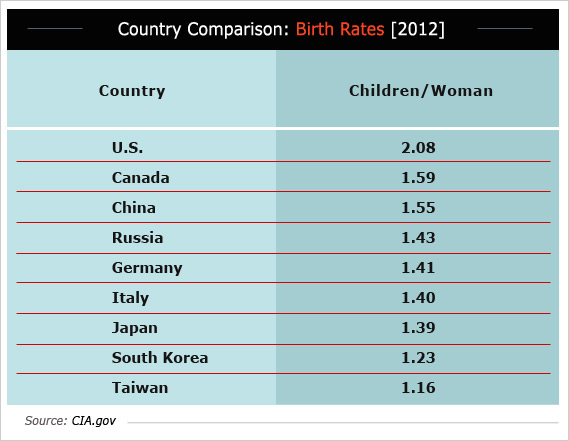The failure to understand that today’s financial issues, from Greek debt to the future of the euro, are caused by the mismatch between 20th century health and retirement benefits and new 21st century demographics is finally grabbing global attention. Restructuring how we work and retire in a time of aging populations is not only new – it’s huge.
That is exactly what the World Health Organization is addressing on World Health Day 2012. Healthy lifestyles can transform aging from a time of dependency and disability to one of vitality and productivity. As the WHO shows in its video, “adding life to years” is as essential as it is transformative. If we are going to “save” Greece, the euro, and other currencies and economies around the world, we must begin by re-scripting the social contract for our current century and aligning it to aging populations.
RELATED: Boomers Forge New Way on Jobs
If Twitter offers any indication, the WHO has hit it big this year as the topic of “Ageing and Health” is resonating with audiences around the world. This resonance is occurring within a milieu in which aging populations are beginning to take the stage. In England, Oxford University offered its London Lecture to Dr. Sarah Harper, a gerontologist who delivered a speech entitled, “The 21st Century: The Last Century of Youth?”
And on this side of the Atlantic, Under Secretary of State Robert Hormats and the Council on Foreign Relations made the case that aging populations are integral to future economic growth and deserve a place in our foreign policy framework.
Indeed, as life spans routinely stretch into the 80s and 90s, and as birth rates continue to drop to unprecedented lows, the aging segment of the globe’s population must remain in good health so they can contribute to social and economic life and drive economic competitiveness. With two billion people over 60 by mid-century, our demographic balance has tilted, and the “old” will soon outnumber the “young.” By the year 2050, 33 countries will all have more than 10 million people age 60 or over, including China with 437 million, India at 324 million, the U.S. at 107 Million, Indonesia at 70 million, and Brazil at 58 million. Clearly, the economic and social health of all nations will increasingly depend upon healthy aging.
Yet, as pressing as this is for the United States, it’s even more urgent for nations in Europe and Asia.
Relatively speaking, the U.S. has a stable birth rate compared to its economic peers. For the U.S., its 2.08 birth rate (number of babies per woman in her lifetime) ranks it far above Canada (1.59), China (1.55), Russia (1.43), Germany (1.41), Italy (1.40), Japan (1.39), South Korea (1.23), and Taiwan (1.16). These rates are critical to economic trajectories because they reveal how many working-aged people will soon be able to pay for public and private “entitlement” systems. In Europe, where the state-funded pension scheme still operates on demographic realities of bygone eras, these low birth-rates are especially foreboding.

Birth rates, however, only tell part of the story. We have to look at the ratios of those who are “working aged” to those who are past “traditional retirement.”
In the U.S. today, there are roughly 186 million people aged 20-64, with around 45 million aged 65+. Yet, in less than thirty years, this balance will tilt significantly. By 2040, the “working aged” population – those aged 20 to 64 – will grow just over 10 percent to 207 million, but the 65+ population will almost double to over 80 million. So long-standing financial entitlements, both public and private, will literally feel twice the pressure they do today – and even more so across the G-8, when by mid century, Italy, Germany, Spain and Japan will have gone from today’s unsustainable 30 percent range of their populations over 60 to a staggering 40 percent and more.
Ultimately, it all points to one indubitable conclusion: We need to extend our working lives. Yet we can only work longer if we age well – which is why this year’s World Health Day is dedicated to healthy aging. The trajectory of population aging is entirely predictable. All over the world, we’re getting older. It’s time to do something about this demographic shift by realigning health, education, work-retirement, economic and financial policies to our current century’s demographic truths.
Michael W. Hodin, Ph.D., is Adjunct Senior Fellow at The Council on Foreign Relations, and Executive Director of The Global Coalition on Aging.



